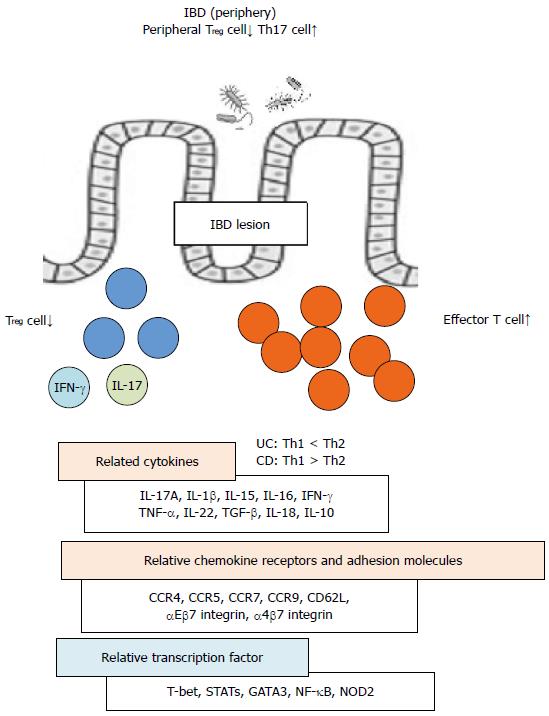Copyright
©The Author(s) 2016.
World J Gastroenterol. Feb 21, 2016; 22(7): 2195-2205
Published online Feb 21, 2016. doi: 10.3748/wjg.v22.i7.2195
Published online Feb 21, 2016. doi: 10.3748/wjg.v22.i7.2195
Figure 1 Molecular contribution to the pathogenesis of inflammatory bowel disease.
In the lesions of inflammatory bowel disease (IBD), a various immune cells and epithelial cells contribute to the onset or development of the disease. Imbalance between cytokines or abnormal expression of chemokine receptors and adhesion molecules through several transcription factors in immune cells including effector T cell influences the pathogenesis of IBD. Decreased number of Treg cells and abnormal differentiation of Treg cells into effector-like phenotype are observed in the IBD lesions.
- Citation: Yamada A, Arakaki R, Saito M, Tsunematsu T, Kudo Y, Ishimaru N. Role of regulatory T cell in the pathogenesis of inflammatory bowel disease. World J Gastroenterol 2016; 22(7): 2195-2205
- URL: https://www.wjgnet.com/1007-9327/full/v22/i7/2195.htm
- DOI: https://dx.doi.org/10.3748/wjg.v22.i7.2195









